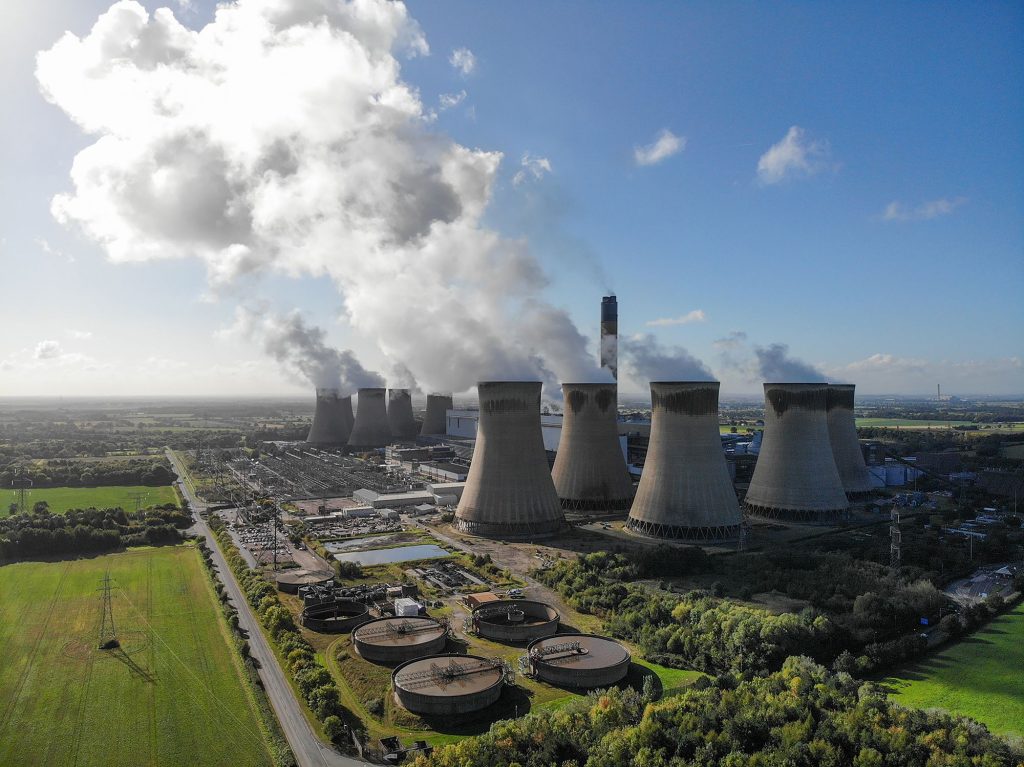(CNN)-The UK government approved a £2 billion (around $2.5 billion) project on Tuesday to create a “carbon negative” wood-burning power plant.
But some climate experts say it’s a costly experiment for a technology that may not be green.
Energy Secretary Claire Coutinho’s decision greenlights a plan to bolt carbon capture units onto two generators at a power station in Yorkshire, northern England, run by Drax.
Once operational, each would be capable of preventing 4 million tons of carbon pollution a year from entering the atmosphere, according to the company.
The carbon would then be stored under the North Sea, with the aim of preventing it from adding to global warming.
Once the most polluting power station in western Europe, Drax switched from burning coal to burning biomass — mostly wood pellets — in 2019.
The power station in Yorkshire, which produces around 4% of the UK’s power, mostly burns wood imported from North America.
Biomass is already considered carbon neutral because even though carbon pollution is released when trees are burned, the idea is emissions are offset by the growth of new trees to replace those burned, which suck up carbon through photosynthesis as they grow.
Adding carbon capture units will convert the plant to a form of energy called “bioenergy with carbon capture and storage,” or BECCS, which Drax says will allow it to remove more carbon pollution from the atmosphere than it is produced by burning the biomass, making it carbon negative.
But the technology has been heavily criticised by some climate experts.
“BECCS is an unproven and highly controversial technology that would come at significant financial cost to the UK public,” said Tomos Harrison, electricity transition analyst at energy think tank Ember.
CNN has reached out to the UK government for comment.
Some scientists have cast doubt on the climate credentials of burning biomass.
A 2021 study from the European Academies Science Advisory Council concluded that burning wood for energy “is not effective in mitigating climate change and may even increase the risk of dangerous climate change.”
A main criticism is that it takes decades for the carbon released by burning biomass to be reabsorbed by new trees and plants as they grow.
There are also concerns that wood sourcing may be damaging to forests.
Last May, following a BBC investigation which alleged some of Drax’s wood came from mature forests in Canada, the UK energy regulator Ofgem launched an investigation into Drax over whether it had breached sustainability requirements in relation to the wood pellets it was burning.
In response to Ofgem’s investigation, which is still ongoing, Drax said at the time it was confident in its compliance, and added that in 2022 the company had appointed a third party to “independently verify the accuracy of its biomass sustainability.”
Drax has said it only uses wood from sustainable sources.
Some experts believe money would be better spent on other renewable technology.
Laith Whitwham, senior policy advisor at climate think tank E3G, said the renewable status of burning wood pellets remains “hotly contested” and Drax’s project was a distraction from where investment was most needed.
“Public money would be better spent on increasing grid capacity and battery storage, and further expanding wind and solar generation,” he told CNN.
Drax has received an average of around £785 million ($620 million) a year in government subsidies, according to Ember research.
“BECCS is an expensive gamble,” concludes an Ember report published Tuesday, which calculated that the project could cost taxpayers up to £1.7 billion a year.
A spokesperson for Drax said Ember’s report “veers between factual inaccuracies and a series of misguided assumptions.”
In its own analysis published Tuesday, Drax said the development of BECCs at its power station would lead to savings of around £15 billion ($19 billion) for the UK.
BECCS “offers the most cost-effective, straightforward and efficient way to help the country meet climate targets and could save billions of pounds, remove millions of tons of carbon from the atmosphere and support the UK’s energy security,” Will Gardiner, CEO of Drax Group, said in a statement Tuesday.
Gardiner called the government’s decision “another milestone” in the development of BECCs. He said it demonstrated the “critical role” Drax could have in “delivering large-scale carbon dioxide removals.”
In its decision letter, the UK government said the project would “make a meaningful contribution to meeting the urgent need for carbon capture storage infrastructure to support the transition to Net Zero by 2050.”






More Stories
Appeal to help house fire victims
Bajans in the diaspora urged to give back
Social services merging soon